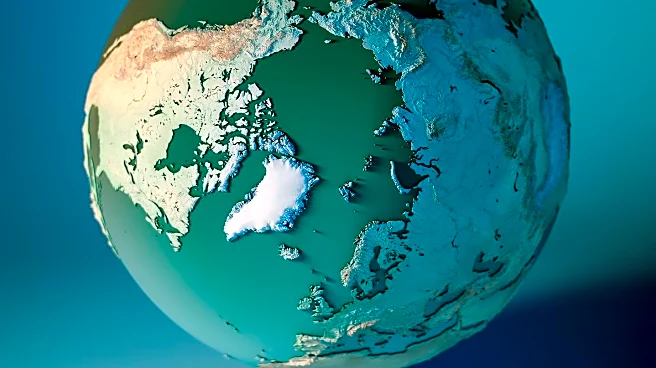What's Happening?
Photographer Zed Nelson has released a new book titled 'The Anthropocene Illusion,' which examines the complex relationship between humans and the natural world. Nelson's work focuses on the concept of the Anthropocene, a term used to describe the significant impact humans have had on the Earth's geology and ecosystems. Over six years, Nelson traveled to 14 countries, capturing images that highlight the artificial and paradoxical ways humans interact with nature. His photographs depict scenes from national parks, zoos, and theme parks, showcasing the curated versions of nature that humans have created. Nelson's work aims to provoke thought about the illusion of nature preservation amidst ongoing environmental destruction.
Why It's Important?
Nelson's exploration of the Anthropocene is significant as it challenges the perception of nature conservation and highlights the ongoing environmental degradation caused by human activities. By documenting the artificial constructs of nature, Nelson's work raises awareness about the need for genuine conservation efforts. The book serves as a reminder of the urgent need to reassess human values and priorities concerning the environment. It underscores the importance of addressing the root causes of environmental destruction rather than relying on superficial solutions that offer temporary reassurance.
What's Next?
Nelson's book is likely to spark discussions among environmentalists, policymakers, and the public about the effectiveness of current conservation strategies. It may lead to increased advocacy for more sustainable practices and policies that prioritize genuine preservation of natural habitats. As awareness grows, stakeholders may push for reforms in how national parks and zoos operate, ensuring that they contribute to real conservation efforts rather than perpetuating illusions.
Beyond the Headlines
The deeper implications of Nelson's work lie in its ability to challenge societal norms and provoke a reevaluation of human interactions with nature. It highlights the ethical considerations of using animals and natural landscapes for entertainment and tourism. The book encourages a cultural shift towards valuing authentic experiences with nature and recognizing the intrinsic worth of ecosystems beyond their economic or recreational value.









